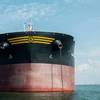European shipowners welcome the Plastic Strategy adopted by the European Commission last week. The first-ever Europe-wide strategy on plastics, adopted today, is a part of the transition towards a more circular economy.
The coherent and impressively first-ever Europe-wide strategy on plastic forming part of the transition towards a more circular economy also included the long awaited revision of the Ports Reception Facilities Directive.
The new proposal aims to achieve a higher level of protection of the marine environment and introduces measures to prevent marine litter. It aims to ensure there are adequate port reception facilities available, require an advance waste notification from ships and transparency of the waste delivery fee charging structures.
The majority of marine litter originates from land-based activities but shipping has an important role to play in controlling the ship-generated waste.
“European Community Shipowners' Associations (ECSA) fully supports the aim of the Port Reception Facilities Directive to prevent illegal discharges of ship-generated waste and cargo residues into the sea by encouraging vessels to discharge all waste to shore-side receptacles”, said Martin Dorsman, ECSA Secretary General.
“We agree that further harmonisation of the current practices is vital to ensure that proper reception facilities are available for current and new waste types in ports. A reasonable, consistent and functional fee system forming an incentive to shipowners to deliver waste ashore is also welcomed. However, we have some concerns," he added.
"The procedures in ports should be as efficient as possible, to keep costs at acceptable levels. In addition, we see the now proposed indirect fee system for the waste delivery allowing the delivery of unlimited amounts of waste as possibly problematic. It may not provide an incentive to reduce waste at source, meaning the vessel or the companies delivering supplies to the vessel as the fee is the same no matter how much waste you deliver. This might also create challenges in defining the fixed price of waste delivery as the port reception facility operators will not know how much capacity is needed but they need to ensure their waste handling costs will always be covered”, he concluded.















